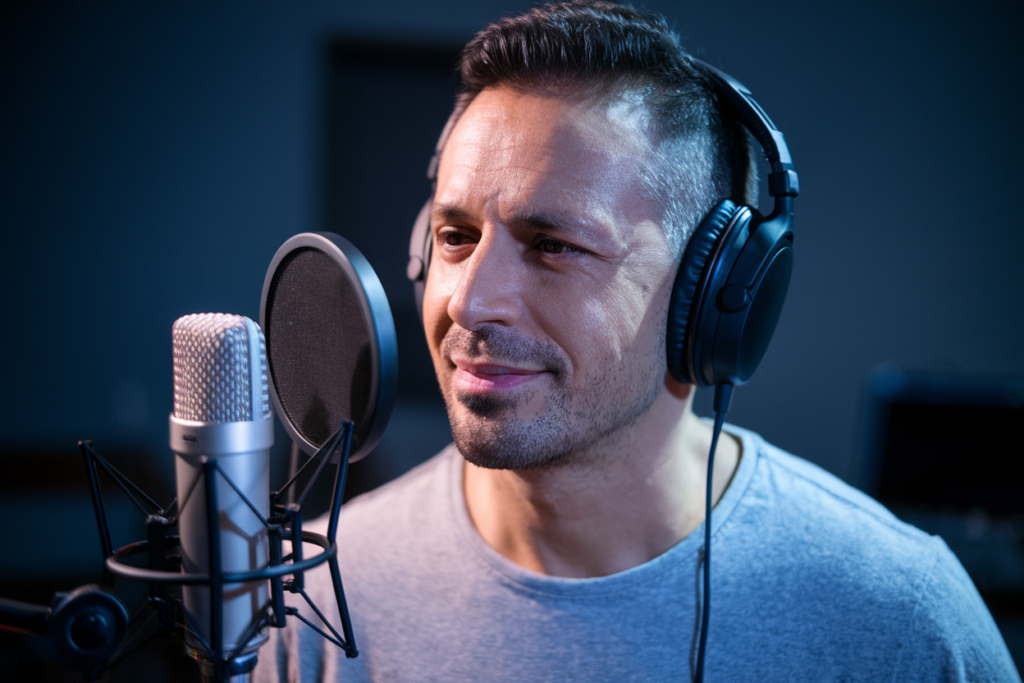Key Takeaways
- Diverse Turkish Accents: Understanding various Turkish accents, such as Istanbul, Anatolian, Aegean, and Eastern Anatolian, is crucial for effective localization.
- Cultural Relevance Matters: Choosing an accent that reflects regional nuances fosters authenticity and strengthens the connection with your target audience.
- Audience Targeting: Identifying your target demographic influences accent selection; urban-focused projects may benefit from the Istanbul accent, while rural content might resonate better with regional dialects.
- Voice Talent Selection: Engaging voice actors who embody the chosen accent enhances relatability and trust in localized content.
- Utilizing Resources: Language learning platforms and voice demos are valuable tools for acquiring knowledge of Turkish accents to ensure authentic representation in localization projects.
Ever wondered which Turkish accent works best for localization? With Turkey’s rich linguistic diversity, choosing the right accent can make or break your project. Whether you’re localizing an app, a video game, or marketing materials, the nuances of accents play a crucial role in connecting with your audience.
Understanding Turkish Accents
Recognizing the variety of Turkish accents is crucial for effective localization. Different accents resonate with distinct audiences, making it essential to choose the right one for your project.
Importance of Accents in Localization
Accents play a vital role in localization projects. They shape the authenticity and relatability of voiceovers, influencing how well your content connects with viewers or listeners. A suitable accent can enhance engagement and trust, ensuring that your message resonates more deeply with the target audience. Choosing an appropriate voice talent who embodies that accent brings characters and narratives to life, fostering a genuine connection.
Overview of Turkish Dialects
Turkey’s linguistic landscape features several prominent dialects, each with unique characteristics. Here are some key dialects:
- Istanbul Accent: The most recognized accent, often used in media and education.
- Anatolian Accent: Found throughout central Turkey; varies by region but tends to be softer than other accents.
- Aegean Accent: Common along the western coast; it’s noted for its melodic tone.
- Eastern Anatolian Accent: Features stronger intonations and regional vocabulary differences.
Understanding these dialects helps you select the best voiceover artist for your specific needs, ensuring that they match not just linguistically but culturally as well. Selecting a voice actor familiar with local nuances enhances authenticity in your localized content.
Factors to Consider for Localization
When localizing content, several key factors influence the choice of Turkish accent. Understanding these elements enhances the effectiveness of your voiceover projects and ensures they resonate with your target audience.
Cultural Relevance
Cultural context plays a significant role in how audiences perceive localized content. Choosing an accent that reflects regional nuances fosters authenticity. For instance, Istanbul’s accent is often viewed as modern and cosmopolitan, making it suitable for urban-focused materials. In contrast, accents from Anatolia or Eastern Anatolia may appeal more to traditional audiences. Selecting a voice artist who embodies cultural characteristics can create a stronger connection with listeners.
Audience Targeting
Identifying your target audience shapes the localization strategy you employ. Different Turkish dialects attract varying demographics; thus, recognizing their preferences helps tailor your message effectively. If you’re aiming at younger audiences in urban settings, opting for contemporary accents like those from Istanbul may enhance relatability. Alternatively, targeting rural areas might benefit from using regional accents that resonate on a personal level. Engaging the right voice talent based on audience insights boosts engagement and trust in your localized content.
By considering cultural relevance and audience targeting while selecting Turkish accents for localization projects, you’ll ensure that your content connects deeply with viewers or listeners.
The Best Turkish Accents for Localization
Choosing the right Turkish accent can significantly enhance your localization projects. Different accents resonate with various audiences, making it essential to understand which one suits your content best.
Istanbul Accent
The Istanbul accent stands out as the most recognized and widely accepted in Turkey. It carries a modern and cosmopolitan vibe, ideal for urban-focused projects like apps and marketing campaigns. This accent appeals to younger demographics and professionals, making it an excellent choice if you’re targeting a broad audience. Many voice artists excel in this accent, providing clarity and relatability that help establish a strong connection with viewers or listeners.
İzmir Accent
The İzmir accent reflects a more laid-back, friendly tone often associated with the Aegean region’s lifestyle. This approachable quality makes it suitable for educational materials or content aimed at family-oriented audiences. If you’re looking to create warmth and familiarity in your project, consider hiring voice talent skilled in the İzmir dialect. Their ability to convey emotions naturally can elevate your message while ensuring authenticity.
Adana Accent
The Adana accent brings a distinct flavor from Southern Turkey, characterized by its unique intonation patterns. Often perceived as earthy and genuine, this accent resonates well with traditional audiences who appreciate regional authenticity. If your project aims to connect deeply with local communities or explore cultural narratives, engaging a voice actor familiar with the Adana dialect can add significant value to your content.
Selecting the appropriate Turkish accent not only strengthens engagement but also fosters trust among your target audience. By understanding these accents’ nuances and implications for localization, you can tailor your message effectively across various media platforms.
Tools and Resources for Accent Acquisition
Acquiring a Turkish accent for localization requires the right tools and resources. A variety of platforms can enhance your learning experience and help you connect with the nuances of different accents.
Language Learning Platforms
Language learning platforms offer structured courses focusing on Turkish dialects, including interactive lessons that emphasize pronunciation. Websites like Duolingo, Babbel, or Memrise provide valuable resources to familiarize yourself with vocabulary and sentence structures. For more immersive experiences, consider platforms like iTalki or Preply that connect you with native speakers for personalized lessons. Engaging directly with tutors allows you to practice speaking while receiving immediate feedback on your accent.
Voice Actors and Demos
Listening to voice actors is an effective way to understand various Turkish accents. Explore online libraries where voiceover artists showcase their work through demos. Pay attention to how they articulate words and express emotions in different contexts—this insight helps you grasp the subtleties of each accent. YouTube channels dedicated to language learning often feature voice talent demonstrating regional variations as well. By analyzing these performances, you’ll develop a keener ear for what makes each accent unique, which is crucial when selecting the right voiceover artist for your project.
Utilizing these tools enhances your ability to acquire an authentic Turkish accent, ensuring that localized content resonates deeply with your target audience.
Conclusion
Choosing the right Turkish accent for localization can elevate your project’s impact. By understanding the nuances of various dialects you can make informed decisions that resonate with your target audience. This connection not only enhances engagement but also builds trust through authenticity.
Utilizing available resources and tools will further empower you in selecting a suitable voiceover artist who embodies the accent best suited for your content. Remember that each accent carries its own cultural significance which adds depth to your localized material. Prioritizing these aspects ensures that your message is communicated effectively and meaningfully, leading to greater success in reaching and connecting with your audience.
Frequently Asked Questions
What is the importance of selecting the right Turkish accent for localization?
Choosing the appropriate Turkish accent is vital for successful localization. It enhances connection with the target audience, making content more relatable and engaging. Different accents resonate with distinct demographics, influencing how well your message is received.
What are some key Turkish dialects mentioned in the article?
The article highlights several key Turkish dialects: Istanbul, Anatolian, Aegean, and Eastern Anatolian. Each has unique characteristics that affect how they connect with various audiences, making it crucial to select the right one for your project.
How does cultural context influence localization projects?
Cultural context significantly impacts audience perception in localization. Accents reflect regional nuances that enhance authenticity. For example, an Istanbul accent may appeal to urban audiences, while an Anatolian accent resonates more with traditional listeners.
Which tools can help acquire a Turkish accent for localization?
Useful tools include language learning platforms like Duolingo, Babbel, and Memrise for structured courses on Turkish dialects. Additionally, iTalki or Preply connects learners with native speakers for personalized lessons to refine pronunciation and understanding of accents.
Why is it important to identify the target audience when localizing content?
Identifying your target audience ensures that you choose a suitable accent that resonates with them. Different dialects attract varying demographics; hence knowing your audience helps create localized content that feels genuine and relevant.







